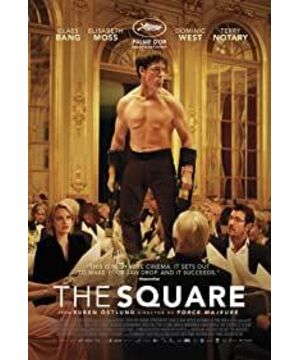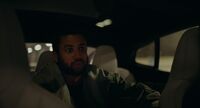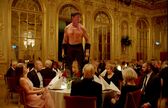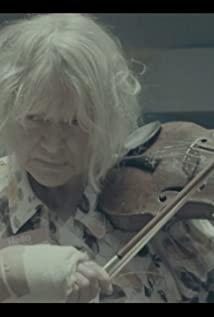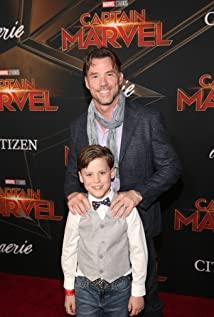Östlund says he doesn't hesitate to string together the more blatant hypocrisy of his characters
By Andrew Crump
October 21, 2017
source:
https://www.slantmagazine.com/film/interview-ruben-ostlund-on-the-square-and-the-social-contract/
Whether you live in an urban or suburban area, you probably pass crosswalks and intersections every day without thinking about the meaning of the crosswalk lines. For most people, they're just spaces that separate people from cars, and zebra crossings lead us from one side of the street to the other. For the protagonists of Swedish filmmaker Ruben Östlund's new film The Square, they represent a pact between the driver and the walker, in which the former agrees not to overrun the latter. This is a reasonable agreement.
This image combines the film's inner and outer thrusts into an effective dramatic framework: we all care about the world we inhabit the surface, but once you get past that surface, we're all more at the mercy of self-directed motives. You might assume that the film "The Square" (a satire by one of the film's most sardonic satirists) is meant to laugh at the contradiction between idealism and its actions, but you're only half right. Östlund doesn't hesitate to string together the more blatant hypocrisy of his characters, but as I found out after speaking with him, he also pityes, even sympathizes with them. Solving all the world's problems alone is a heavy burden for one person, and perhaps what The Square attacks most: it's up to the individual to correct society's endless wrongs.
Q: If I remember correctly, the whole idea for the film was derived from an art installation you made a few years ago?
A: Yes, that was a project of me and a friend of mine. We were invited to do that installation at a design museum in Venamo, Sweden. We had this thought and actually realized from the beginning that it might not be an art installation. It's more of a humanitarian traffic sign, you know, like a symbolic place, it's supposed to remind us of our role as fellow human beings, of a social contract where we can trust each other and take responsibility.
Q: How did you find the solution to this idea? It's a great angle to look at for something so mundane and everyday that most of us don't usually disassemble it this way.
A: The idea came up when I was shooting the movie "Children's Play", which is about a little boy robbing other little boys in the center of Gothenburg where I live, and it was inspired by real events. These robberies have been going on for about three years, and I read court documents carefully, and I can see that even though the robbery happened in a mall with a lot of adults around, very few adults came to stop the robbery. The children also did not seek help. It's like the world of children and the world of adults take place on two parallel levels. I talked about it with my dad, who grew up in Stockholm in the 50s. He told me that when he was a kid, his parents put a tag around his neck with their address on it and let him go downtown by himself. Obviously, in the 1950s we saw other adults as people who would help children when they were in trouble; but today, we tend to see other adults as people who would cause trouble for children. That's an attitude change. Society has not become dangerous. Society is just as safe, sometimes even safer. So this film is an attempt to embrace this change in attitude and to forge a new social contract on how we treat each other.
Q: It's interesting that you've been addicted to this idea since Children's Play. I immediately thought of The Tourist, which also expressed this idea. Will you be the focal point of your entire career?
A: Yes, I'm trying to express what exactly makes me interested in it. There is always a conflict between who we are expected to be and who we want to be, and suddenly we are faced with dilemmas that make us behave differently. I think that's really the core of being human, we're dealing with our intuitions and needs, and at the same time we see ourselves as rational and cultured people, we're civilized people. There is a conflict between these things. That is human. We are animals! At the same time, we strive for equality. We strive to be fair. When you find that breaking point, it's always pointing us to something.
Q: Do you feel that we are more prone to this kind of social inaction than ever before? Maybe we're in a safer environment today, but I feel like sometimes we're more distant from each other and less willing to help.
A: Yes. I'm sure we've become more individualistic and have lost trust in common projects when working together. We increasingly understand that each person is his own company, his own economical brand. For example, if you look at the beggar problem in Sweden, in many ways this is a new phenomenon for us. Interestingly, we personally carry a great deal of guilt, whether or not the individual helped. But at the same time, seriously, individuals will never be able to solve this problem. But if it's discussed at a social level and it says "let's raise taxes for the richest," then it's us who solve this problem together, and it's possible to solve this problem. But today, we have blamed so many community and societal problems on individuals, which creates a lot of guilt and stress for individuals. But in reality, we no longer have the ability to organize ourselves, really.
My mother taught in Swedish schools and she is now retired. But she told me that the moment teachers get their individual salaries (individual salaries?), they lose the possibility to organize themselves in unions and fight to improve their working conditions. So all of a sudden they have a lot of classes, fewer vacations, things like that. This does affect the quality of education in Sweden. I think the kind of stuff that comes with a personal salary makes people more concerned about their position and their own relationship with the principal (the person who pays the salary). So I really think it's pointing out how to elevate ourselves and make ourselves less capable of organizing ourselves.
Q: It was very enlightening to hear it. I would like to ask, how do you think we can get out of our inaction as individuals and carry it forward. When we're under all these personal pressures, how do we motivate ourselves to get out of ourselves, out of our own lives, to reach out to others?
A: One is knowledge and education. We believe so much in personal freedom that you should do whatever you want with your money and you should do whatever you want with your life. We believe in these ideas about spending power, and so on. But, seriously, some problems can never be solved on an individual level. I mean, whether I recycle plastic bags or not, I think we need regulations on a societal level. Some problems must be addressed at the societal level, and we need laws and regulations to deal with them.
For me, it's really about education about economics. In many respects, I think Marx is quite right when we analyze changes in behavior due to changes in social status and economic conditions. I think this idea is very important. We think we are free from the social structure in which we live, but in reality we are completely imprisoned by our social status. We need to understand: we are the ants of an ant farm.
Q: After hearing what you said, I began to slightly revise Christian's interpretation. I feel like the movie is not only belittling him, now, I'm kind of sympathizing with him at the same time.
A: (laughs) I think I think about Christian as much as I think about myself. I must be able to relate to his behavior. Otherwise I'll just laugh at him, which I don't want to do. I also wanted to understand why he did it when he did it.
Q: So you sympathize with him, just like you sympathized with Thomas in The Tourist again? I think it's crucial to study the masculinity in both films.
A: It's interesting. If you are looking at the landscape and see a buffalo and a lion, even if the lion swallows the buffalo's child, you will still feel sympathy for the lion. With this angle, you can try to put things in context, making it easier to develop empathy for even what is considered bad behavior.
Q: This also makes observing Terry Notary's big scene from another angle. I think I'll have to watch the movie a second, third, fourth time to really understand Oleg's compassion. It was an extreme scene.
A: (laughs) Yes! absolute. He was inspired by the Russian performance artist Oleg Kulik. When I planned that scene, The Square was aiming to premiere at Cannes. I really like the idea that we're going to have an audience in a tuxedo see another audience in a tuxedo controlled by Terry Notary's character to try and mirror themselves. I think that's the only thing I try to do when I'm making a film, the audience has to face the subject, the problem and the dilemma itself. I agree, that performance artist is an extreme person in a sense. I wish I was as strong as he was when I was filming, but I wasn't!
Q: For me, that scene in addition to aligning nicely with the film's theme of "people helping" -- because no one really helps until it's overdone -- also aligns with the critique of the art world. Relevant, which happens when art is directed at an artist or a curator. Did that also have an impact on how you wrote the scene?
A: Did you know that Oleg Kulik performed in a museum in Sweden called Färgfabriken, where he played with dogs. There was a big sign next to him that said, "Beware of that dog," and he attacked the audience when they were disrespectful. In the end, the curator's daughter was bitten on her leg so badly that she had to call the police.
Q: Going back to The Square, it feels like you also considered the people in the studio, the people who helped you make the film. I'm thinking of two social media strategists. Does this also relate to your experience?
A: Yes, the PR agency, those two guys. I think I'm interested in talking about the film and the philosophy behind its creation. But when I tried to say it, a lot of the responses were, "Well, that's great!" But no one really got involved. Therefore, I always consider PR firms based on my own experience. That's right! How do we advance humanistic, non-commercial projects today? PR firms do the exact opposite, cynical, unhumane, but successful. I like their success. The media jumped right into the trap and started writing about that altruistic piece of art because of this ironic video.
View more about The Square reviews


